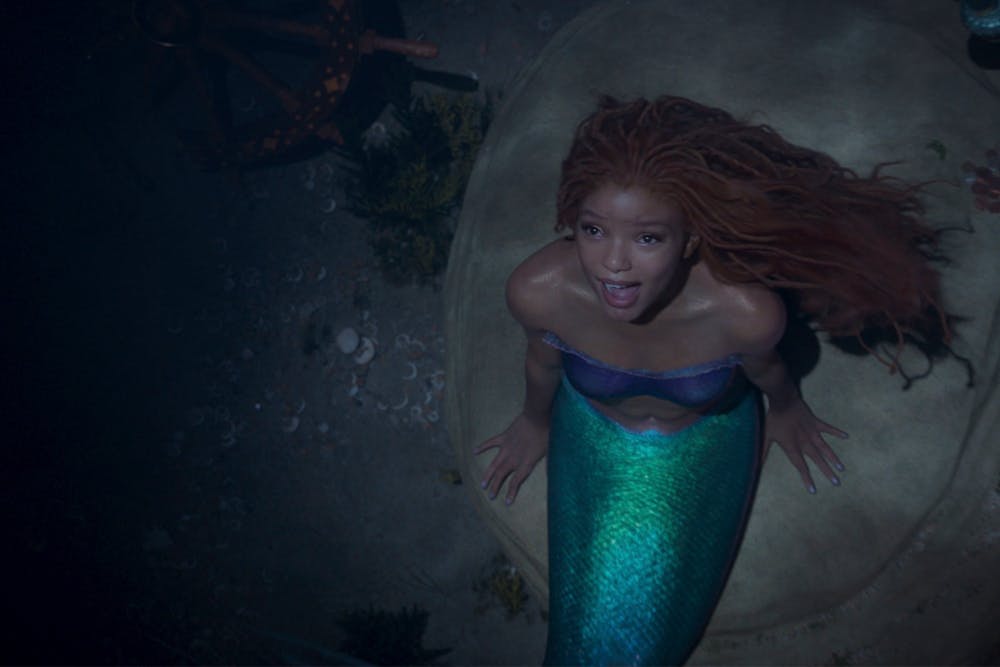In July 2019, Disney announced it had chosen actress Halle Bailey to play the leading role of Princess Ariel in the upcoming live-action remake of “The Little Mermaid.”
Some Disney fans were delighted at the idea of a fresh take on the beloved childhood story, not least of all because of the diversity Bailey’s casting would add.
People commented and tweeted their excitement for the film and their hopes for diversity in Disney’s future productions.
However, not everyone shared the same excitement for a more progressive remake. Many fans, claiming they wanted to protect the integrity of the original animated film — which stars a red-headed, blue-eyed, white mermaid — expressed their outrage online.
One Twitter user commented, “Bummer. Ariel is a white redhead.”
Another user said they were sick of attempts at inclusivity.
They threatened to boycott the film’s release, arguing they weren’t racist, but that they simply couldn’t accept an actress who looked so different from the original 1989 Ariel.
Now that the filming has finally wrapped up, after setbacks due to the COVID-19 pandemic in 2020, the popular excuse for the backlash against the movie is still “white nostalgia” — fans remember Ariel looking a certain way and expect her live-action counterpart to look as similar as possible.
While most comments and critiques are relatively tame — though arguably poorly masking deep-rooted prejudices — some fans’ reactions go beyond borderline racism.
One person even went so far as to edit the movie trailer’s thumbnail, lightening her skin and changing her hair from Bailey’s locs to straighter hair. The locs are something the actress was especially excited to include in the film.
“My hair, for example — incorporating my locs into the red hair was something that was really special to me,” Bailey said in an interview with Entertainment Weekly.
Bailey’s locs are a typically Black hairstyle — yet another visual difference that would-be Disney purists simply cannot abide.
Jekylah Smith, treasurer of Black sorority Delta Sigma Theta’s Gamma Nu Chapter, said those angered over the casting choice simply don’t understand what it’s like to be a young person of color growing up on mostly-white television.
“It can be an ignorance thing because they don’t understand how it feels to be a little girl watching Disney movies…and not being represented in that light,” she said. “People who aren't minorities are always highly represented. … they always have somebody that looks like them.”
The uproar over the new Little Mermaid’s look has nothing to do with who the character of Ariel is at her core. In fact, Rob Marshall, director of the film, was astounded by how much of the princess he could see in Bailey from the beginning.
"It was abundantly clear that Halle possesses that rare combination of spirit, heart, youth, innocence, and substance — plus a glorious singing voice — all intrinsic qualities necessary to play this iconic role,” Marshall said in an official statement from July 2019.
What the backlash does illuminate, however, is society’s intolerance of non-eurocentric beauty.
It seems the most anger comes when other, non-white standards of beauty are held up as equally or more beautiful than their white counterparts.
Smith questioned the excuses critics gave for their hatred of the movie.
“I feel like they don’t really have valid arguments besides ‘It’s my childhood. It’s nostalgic,’ when the actual issue is because the actress in the movie is not surrounded around European skin colors (and) facial features,” she said, also praising Bailey for being an icon non-white kids can look to so they feel beautiful.
She said it’s a struggle to feel good about yourself when you’re underrepresented and ignored in the media.
“If you have super curly hair, it’s a bad thing, if your hair is thick, it’s a bad thing,” Smith said. If you have a big nose, if you have big lips, it’s a whole ordeal. “It makes minority girls feel like they're not beautiful enough.”




